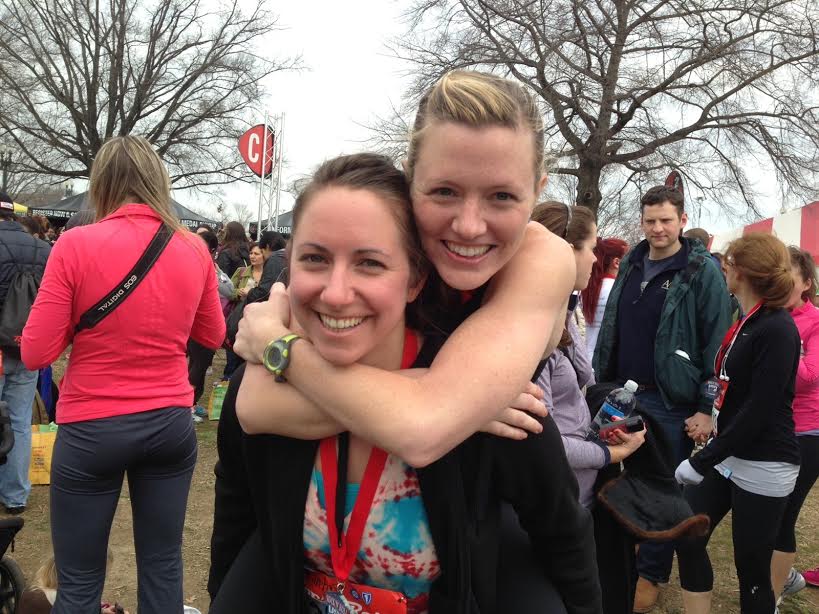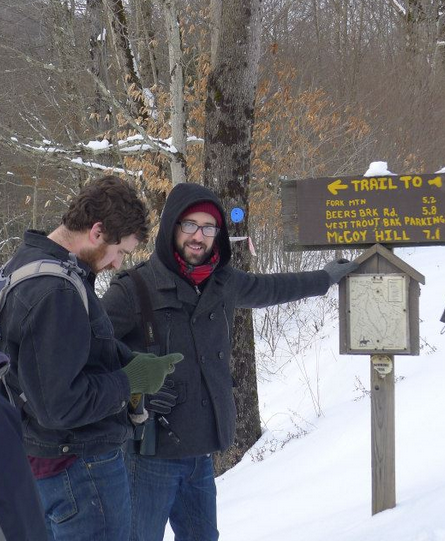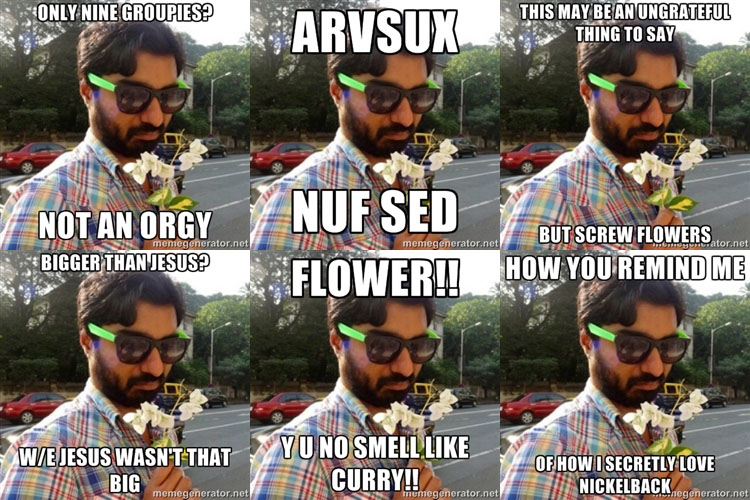This piece is part of our "I Did It!" series, a collection of first-person essays celebrating outlandish means and wild achievements. Submit your own story to "I Did It!" by emailing The Airship’s editor at Arv@AirshipDaily.com.
It was about 11:10 A.M. I was walking from a meeting with one of my supervisors to a seminar, strolling through Bloomsbury, the beating heart of literary London. I crossed over Upper Woburn Place and walked past the HSBC branch on the corner of Barnard Street. There’s a Bangladeshi man who sells Union Jack postcards and mugs from a large stall just outside the entrance. Dozens and dozens of people milled around. A security van was parked outside the branch entrance. A driver was walking from the van to the bank entrance, on my left, holding a grey-colored hard plastic money case. I barely noticed him.
Corner where the robbery took place
As I drew level with the entrance, a barked shout snapped me from my reverie. (I still have no idea what was said.) I looked to my left and saw a man dressed in a grey Nike sweatsuit and silver motorbike helmet run up behind the delivery driver as he entered the bank lobby. He shoved the driver in the back, hard, and the driver fell forward. He dropped the money off to his right. The robber made a slightly ungainly shuffle-step and scooped up the case.
Everyone froze — well, apart from the thieves. It was disbelief rather than fear. It was, momentarily, a breakdown of society. Fairly basic tenets, things like property rights and the rule of law, showed themselves to be mutable and surprisingly fragile.
The robber spun around. For a second, I was in between him and the moped he was making for, driven by another helmeted guy in a black or navy tracksuit. Tackle him, I thought. Then I thought, GUN, KNIFE. He ran past me.
“Go go GO,” he shouted. His visor was up, and I saw that he was white. He jumped onto the back of the moped, and they zoomed down Barnard Street. I walked four or five steps after them, trying to memorize the licence plate: JVIII 9PH.
I turned back towards the bank. An East Asian woman had been standing opposite me during the robbery. She walked away. The guy tending his stall stood there for a second before rearranging some of his wares. There was something studied, deliberately unaware, in his movements. I’m not involved, his body language said. People continued to stream around me. I waited for the communal response, for the group answer the question those two men had posed: Was society more or less a lie? I was more shocked by the lack of response from anyone than the actual robbery.
Everyone who had seen the incident melted away. Central London on a weekday morning: Within seconds I was surrounded by people walking past who had no idea what had just happened.
I walked towards the branch, taking my phone out and dialing 999. I’m naturally inquisitive — or nosy — and I wanted to see what happened next.
“999, what service do you require?” a woman asked.
“There’s been a robbery, the HSBC on the corner of Upper Woburn Place and Barnard —”
“What service do you require?”
“There’s been a robbery —”
“What service do you require?”
“Police,” I finally said. I went through to a male voice.
“What’s the emergency?” he asked.
“There’s been a robbery, the HSBC on the corner of Upper Woburn Place and Barnard Street.”
“When was this?”
I laughed slightly. It seemed strange to consider there were times and places where this wasn’t the most crucial thing currently happening. Mind you, it hadn’t seemed that crucial to most of the people who’d seen it.
“Like, a minute ago.”
“Any weapons?”
“I didn’t see any.”
I was now in the bank. The driver, a wiry black guy in his early 40s, was on his phone. He was describing what had happened too. Evidently, he hadn’t seen much. A young female bank employee handed him a small plastic cup of water. He was shaking slightly.
I was embroiled in a confusing three-way process: I was talking to the emergency operator while listening to the driver’s conversation while also being aware that he was listening to my conversation.
Operator: “Where is this?”
Driver: “I just got pushed from behind.”
Me: “The HSBC on the corner of Upper Woburn Place and Barnard Street.”
Driver: “They took the day case.”
Operator: “I don’t know it.” (Was he supposed to know every street in central London?)
Me: “It’s…” I felt helpless. London streets have the postcode under the street name; I looked out of the window of the bank. “WC1.” West Central 1.
Units were on the way. The driver was scratching something onto a pad he had, what looked like a pre-printed form. I finished the call.
“I’ve got the licence plate,” I said. “JVIII 9PH.” He scrawled down the number, barely, while he was still on the phone. He was holding the clipboard up with one hand and writing with his other so couldn't apply enough pressure to write firmly. His 9 looked like an o and the v was only two-thirds complete.
“The guy that pushed me was black, wasn’t he? Because he sounded Caucasian,” he said, half to me, half into his phone.
Two police cars arrived within about four minutes. I walked back out of the bank towards them. The officers — all men — went briefly into the bank before coming back out with the driver. He went through what had happened. I stood vaguely by the memorabilia stall, too far from the officers and the driver to be a part of their conversation or witness statement. I can’t lie: I felt slightly left out.
“It’s got a tracker and dye packs,” I heard the driver say. Was this privileged information? Should I have heard that? I wondered if the robbers would be apprehended straightaway. Somewhere closeby, sirens started up. Perhaps another unit had found them.
“They were watching you all morning,” one of the policemen said. It was weird how definite he was, like he’d known all along. The driver gestured to me.
“This gentleman assisted me,” he said. I thought that was pushing it. I had done only very slightly more than nothing whatsoever — but that was, admittedly, more than anyone else had done.
Another officer came over and took my details and statement. Giving my details in the street made me uneasy. What if a henchman had stayed behind to observe the follow-up? The chances of this were almost zero, I knew, but I had read more than a few books as a kid where a child witness to a crime found himself hunted by bandits. For an insane second I wondered if I’d be offered witness protection if anyone was caught.
“What did the offender look like?”
“He was white,” I said. Had he been white? I felt a jolt of commingled fear and exhilaration. It was down to me to set the narrative. For that one second, I was the unimpeachable authority on the robber’s description.
I had decided that the robber was white. I left out the detail of it having been a Nike tracksuit; it seemed somehow frivolous. I repeated what I’d seen of the incident and the number plate. I felt slightly wounded that my diligent repetition of the number plate hadn’t seemed to impress anyone. Presumably the moped was stolen, but still. The officer thanked me and said they might be in touch.
Once home, I googled for news of the robbery, in increasingly esoteric combinations, hoping to find a news report. Nothing. London’s a big city; these types of robberies are fairly common, apparently. There are one or two a week. I mulled over the day’s events, wondering what I could have done differently. Not much, really.
I’m still waiting to hear about witness protection.
Patrick Kilkelly writes about culture, travel and music. A Ph.D. candidate at London University’s School of Oriental and African Studies, he reads more about 19th century Korean grain tax reform than is healthy.
Have a first-person essay celebrating your own outlandish means and wild achievements? Submit it to our "I Did It!" series by emailing Arv@AirshipDaily.com.
(Image credit: JPK’s Adventures in Cinema)
KEEP READING: More from “I Did It!”







 A Black Balloon Publication ©
A Black Balloon Publication ©